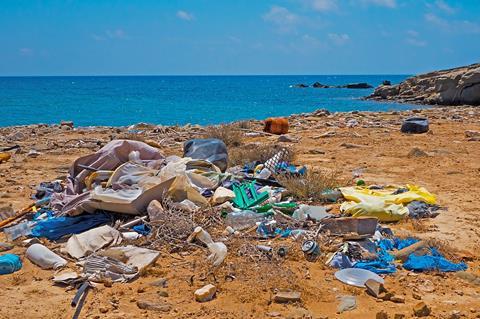A total of 160 financial institutions and two industry stakeholders from around the world are calling on governments to negotiate an ambitious treaty to end plastic pollution ahead of negotiations taking place at the fourth meeting of the Intergovernmental Negotiating Committee on Plastic Pollution (INC-4) next week.
Representing $15.5trn (€14.6trn) in combined assets, signatories of the Finance Statement on Plastic Pollution come from all regions, including a strong voice from OECD countries, and notably 15 signatures from Asian financial institutions, including from India, Indonesia, Singapore, Japan and Republic of Korea, where the next and final round of negotiation will take place before the end of 2024.
Among the 160 signatories are the Swedish AP Funds, France’s Caisse des Dépôts (CDP), the UK’s LGPS Central, along with Dutch schemes Pensioenfonds Medewerkers Apotheken, PMT, PME, Pensioenfonds Rail & Openbaar Vervoer and PGGM, and many others.
In signing the statement – which was drafted early last month by the Principles for Responsible Investment (PRI) together with UNEP FI, Finance for Biodiversity Foundation, the Business Coalition for a Global Plastics Treaty, the Dutch Association of Investors for Sustainable Development (VBDO) and CDP – financial institutions acknowledge that the finance sector has an important role in mitigating financial risks related to plastic pollution and they are taking this opportunity to inform negotiators what a robust agreement would include from their perspective.

“Redirecting both private and public financial flows towards the treaty’s objectives will be crucial to meeting the plastic pollution challenge head-on,” said UNEP FI head, Eric Usher.
“We ask member states to take note of the call from a significant segment of the global finance industry to create a historic environmental treaty that takes into account the commercial challenges and the risks and opportunities associated with financing the solutions to this global pollution issue,” he added.
The statement specifically asks for the treaty to be supported by binding rules and obligations for governments to address the full life cycle of plastic, for it to be based on a scientific approach and for it to create the framework to align all economic participants with its objectives.
Furthermore, it asks for the treaty to include harmonised targets across the plastics value chain and to ensure that companies assess and disclose plastic-related risks and opportunities.
It also stresses the importance of promoting an enabling policy environment for the transition to a sustainable and equitable economy that addresses plastic pollution, suggesting initiatives such as extended producer responsibility schemes.
David Atkin, chief executive officer of PRI, said: “We know that climate and nature issues are intrinsically linked – with both representing significant systemic risks to industry, and therefore to investors and their holdings. Climate change, biodiversity loss, plastic pollution and other issues cannot be tackled in isolation, but require systemic responses.”
He noted that, with this statement, “investors are signalling their desire for governments to establish a clear, robust policy mandate to tackle the issue of plastic pollution, in keeping with efforts on climate and biodiversity”.
Atkin added: “This mandate should call for an end to plastic pollution and be based on a scientific approach which orients all economic actors towards its objectives.”
Looking for IPE’s latest magazine? Read the digital edition here


















